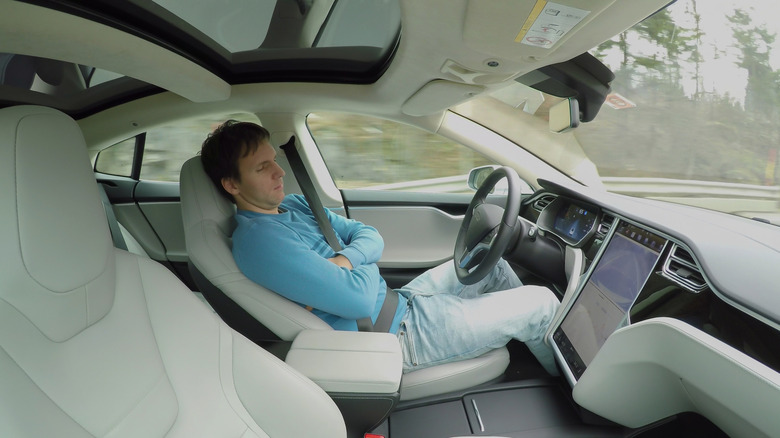How Reliable Are Electric Vehicles? Here's What Consumer Reports Says
Nothing is perfect. Vehicles malfunction sometimes, and that means they need repairs or parts replaced. One can only hope it's not a regular occurrence, especially since it can end up being heavy on the wallet. That's why it makes a lot of sense to look into what vehicles are more reliable before you purchase a new one. Consumer Reports, if you've never heard of it, does an excellent job of providing this information. It conducts testing and combines it with consumer research to give products like new cars a score. It builds a score using four key factors, including road tests, reliability ratings, owner satisfaction, and safety reports.
So, when Consumer Reports puts out data that electric vehicles (EVs) are still less reliable overall than gas-powered vehicles, it's important to pay attention. According to that data, EVs in the past three years have seen 42% more problems than gas-powered vehicles. While that number is an improvement over the previous year's results, it shows that EVs still need more optimization. Of course, that raises a couple of questions, such as why they're less reliable — especially since EVs are known to be cheaper to drive than gas cars, and how likely is that to affect you when or if you own one?
What contributes to the most reliable cars?
Consumer Reports' brand-level rankings on the most reliable vehicles show some pretty stark differences in the gas versus electric argument. Companies like Rivian and Tesla are near the bottom, with Rivian being last. Meanwhile, Subaru, Lexus, Toyota, and Honda dominate the top. The report shows hybrids are the best in terms of reliability, probably because they offer the best of both worlds. But plug-in hybrids and dedicated EVs tend to have the most problems. Plug-in hybrids have 70% more problems than gas cars or hybrid vehicles from the year prior, down from 146%. Purely electric vehicles have 42% more problems than gas-only or hybrid vehicles, down from 79% the year prior.
The most likely culprit for this is the electric powertrain, which refers to the core systems inside the vehicle that generate power and deliver it to the wheels. The powertrain generally consists of the engine (or motor), transmission, differentials, drive shafts, and more. An electric powertrain, however, is very different from a gas-only one, because it's powered purely by electricity coming from the batteries rather than an internal combustion engine that burns fuel. Bigger and more capable batteries need to be used for a higher range, increasing the vehicle's weight. More weight puts more strain on the motor, and in turn, the tires, causing more wear and a higher potential for failure, so it's a cyclical issue.
What does this mean for potential EV owners?
The data doesn't necessarily mean that you should avoid EVs altogether. They might still make sense for you and your family, depending on your usage. But it does show that EV manufacturers have a lot to do to shore up reliability and performance, particularly if they want to maintain pace with gas-only counterparts. There certainly are a lot of benefits to using an EV, like fewer moving parts, excellent range on a single charge, and the introduction of new, advanced technologies in the cabin. However, the cheapest electric vehicle on the market reveals why adoption isn't higher — EVs still cost more than gas-only vehicles. That said, they do tend to have good warranties. Tesla covers the powertrain and battery for up to eight years or 150,000 miles, whichever comes first.
EVs are the best option for moving away from fossil fuels. But when it comes to cost efficiency and adoption, they're clearly lacking. Couple that with the fact that they sometimes need special parts, like special EV tires instead of regular ones, and they could well be considered a hassle. Gas-only vehicles have already gone through these growing pains and have matured over time. That doesn't mean we write off EVs just yet. They're improving — and at a fast pace, too.


